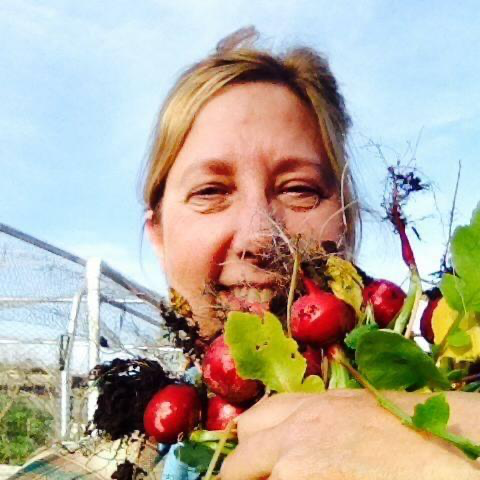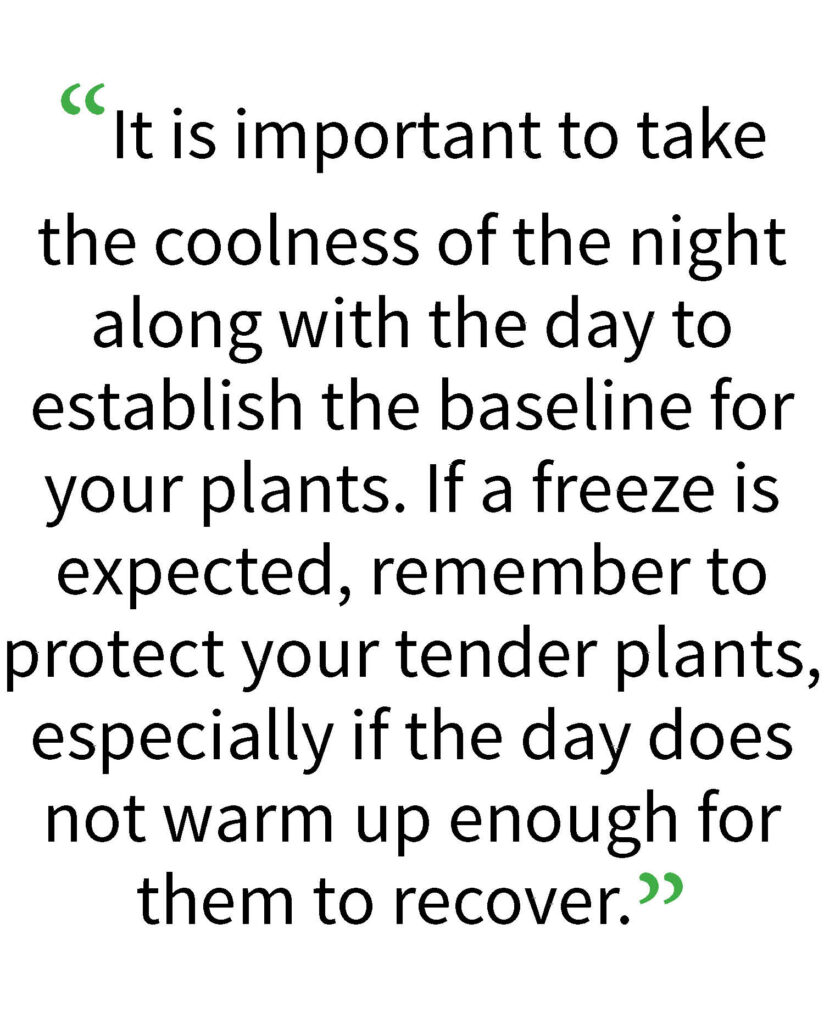The total number of chill hours affect the ability of some fruit trees to produce fruit
![]()
By Sharon McCray

Sharon McCray
I heard a comment from a friend living in Wyoming. She said, “what is good about winter?” Before I could respond, she said “nothing.” Well, here we are in the middle of a somewhat wet winter. Such a novelty in California. In the meantime, we just need to adapt.
The ground is exceptionally wet here at home while too many parts of the world are struggling seriously in drought. This is, after all, a farmer’s reality.
It is important we take, or should I say, make the time to check on too much water in our gardens. All this moisture is causing issues with plants that have grown to expect otherwise. Some established trees are now drowning. If you see mushrooms it should not surprise you.
A big word of caution. Never eat wild mushrooms unless you know exactly that they have been positively identified by a real expert and then give them the first taste. One bite of the wrong mushroom can kill you.
Anyway, back to the too much water. Any containers that do not have drain holes should be checked. One inch of standing water can devastate most plants. Tip the pot on its side, allowing the excess water to drain out, then relocate it to a place that won’t get rained on. It is better to water by hand than to lose a prized plant because of too much water. A top dressing of mulch on in-ground plants can be very helpful.
 Living on the outskirts of our valley can provide for less rain and usually cooler temperatures. Morgan Hill and Gilroy areas are notoriously colder than cities to the north. It is important to take the coolness of the night along with the day, to establish the baseline for your plants. If a freeze is expected, remember to protect your tender plants, especially if the day does not warm up enough for them to recover.
Living on the outskirts of our valley can provide for less rain and usually cooler temperatures. Morgan Hill and Gilroy areas are notoriously colder than cities to the north. It is important to take the coolness of the night along with the day, to establish the baseline for your plants. If a freeze is expected, remember to protect your tender plants, especially if the day does not warm up enough for them to recover.
Chill hours are the total seasonal hours that the outside temperature has remained between 32 and 45 degrees. The total number of chill hours affect the ability of some fruit trees to produce fruit. The USDA assigns a “Plant Hardiness Zone” for all of the U.S. Zone 1 is the coldest zone. The weather collecting data for Santa Clara County is located in Gilroy. As of Jan. 1, 2024, Gilroy had 25.7 total chill hours and on Jan. 1, 2022, 40 chill hours. Gilroy finished the season with 105.
These numbers provide pertinent insight to the home gardener. Apples and cherries are considered “high chill” fruits. High chill apple varieties can need up to 1,000 chill hours to produce fruit. Surprisingly, Red Delicious and HoneyCrisp need a minimum of 800 hours to produce fruit. It is easy to understand growing these particular varieties here might prove “fruitless.” A better choice would be Granny Smith or Fuji apples that require closer to 400.
Cherries are usually another high chill fruit with most requiring 700-800 chill hours. By selecting low chill varieties the home gardener can have better success. When ordering your trees online it is wise to select varieties that will thrive here. The USDA and Dave Wilson Nursery both provide extremely useful information based on your zip code for free.
Finally, remember those seeds I told you to save earlier this year. Well, it’s time to put them in the ground. In the meantime, enjoy our fabulous California winter.
Sharon McCray is a California native living in Santa Clara County since 1959. She became certified as a University of California cooperative extension master gardener in 1992 and a UCCE master naturalist in 2015. She hosts a radio show on KKUP public radio and is now retired.







